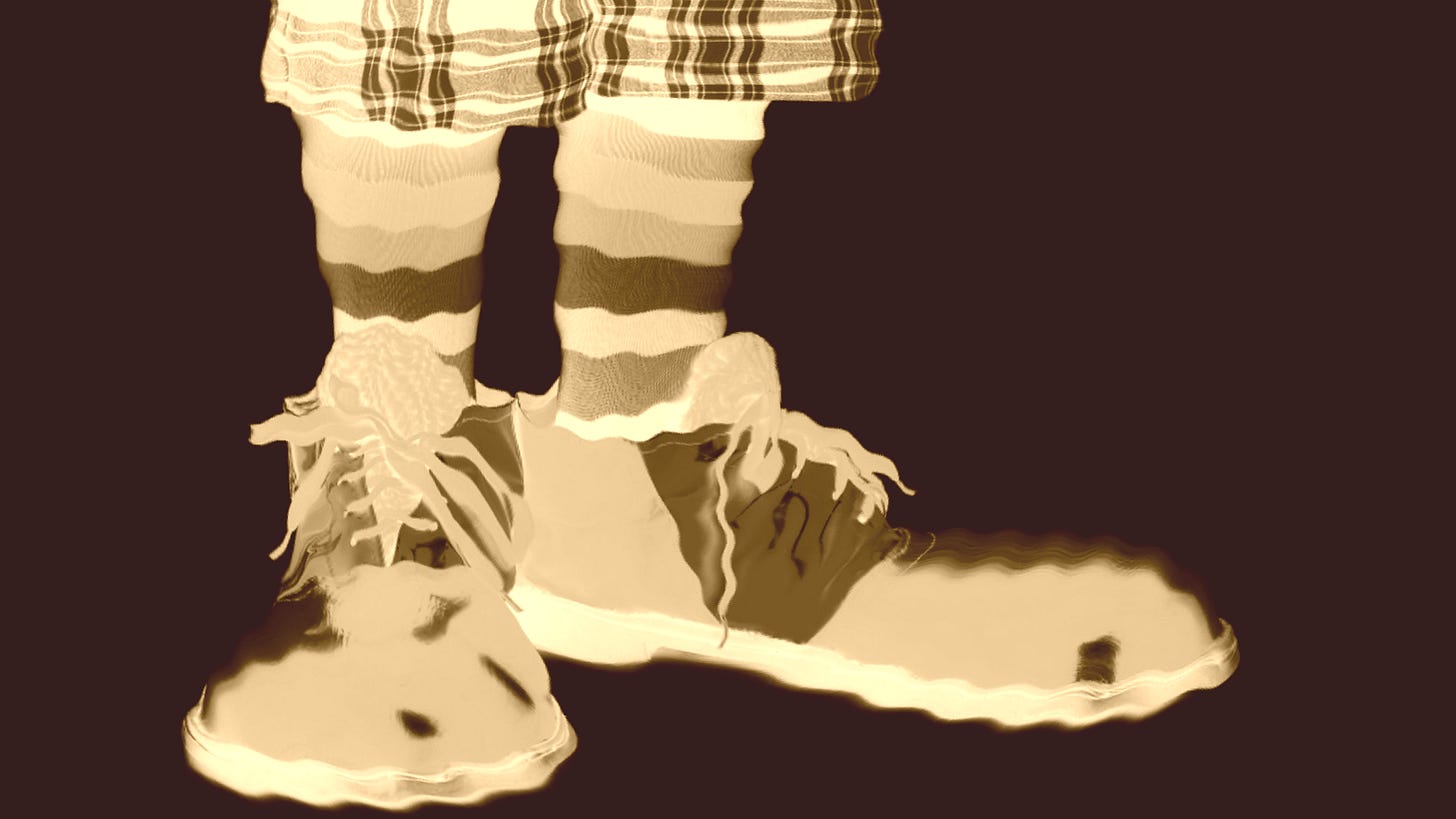Over the last six months, predominated as they were with Covid news and the bathos of end-game presidential politics (often two sides of the same story), I have become even more of a news and Twitter junkie than I was already. I’m sure it’s the same for many of you.
Bathos is arguably the right word, too. It’s usually thought of as a ludicrous descent from the elevated to the low, an anticlimax. That ludicrous in there has a synonym in travesty, which has two dictionary meanings. It can be “a false, absurd, or distorted representation.” Alternatively, it’s “a burlesque translation,” by which is meant a grotesque artistic imitation; a parody. Well, yes. That sums up how I feel about the last months of the American presidential dog-and-pony show. More than that, it’s how I feel about the entire Trump era.
I don’t want to devote this podcast entry to deconstructing Trump, though. I would just be punting, repeating the work of dozens of serious commentators I’ve become well-acquainted with over the past year or two. (Twitter is an invaluable resource for such intellectual intimacy; one can interact with countless higher minds there in a way that hasn’t otherwise been possible outside of a pure academic setting.)
While I am tremendously relieved this week (following twelve o’clock high on the 20th of January 2021), and while I’ve had a certain sense of national hopefulness suddenly renewed after I’d thought it was too late for that, I don’t want to use this entire cast to talk about that, either.
I want to talk more generally about what got us to a grim foreboding, a chronic malaise, a turgid anxiety as a leitmotif; a tragic habit of our time.
I’ve come to harbor a deepening existential apprehension over democracy and civil society. It’s emergent from the lampoon of vaudeville events that have, in recent memory, been sent caromming across the national stage. Think of the old joke about the drunk under the lamppost looking for his keys. You peer down to help and you ask where he was standing when he lost them, to which he answers, while pointing into a dark alley, “Over there, but the light’s better here.” That’s been our American curse. It’s supplanted and usurped our American dream.
The events that have tripped across our nation’s sociopolitical stage for too long have been, mostly, like circus clowns with giant shoes. Morose clowns; deplorable clowns. It’s not La Cage aux Folles, it’s Les Misérables.
Okay, so here we are, but what role has the broad populace played in this tragicomedy? Here I would say: the trouble is magnified and made intractable because people have “learned” not to trust the process or the remedies sanctioned by the social contract.
Wait, I feel you clenching, so let me explain. I’m not pining for a return to a clampdown of individual rights under the tutelage of the superior authority of the State. I’m not a naïf, in other words. I want to be modern. I don’t want to throw away two hundred years of social dialectic. But, and here’s how simple it is, every bloody individual out there, every self-acclaimed knows-better-than-thou person, can’t just make up his own rules.
That’s the crux. That’s where we went off the rails. If I’m trying here to be a knows-better-than-thou person myself, which I hope I’m not, but if I am, it’s only to give you my urgent view of the matter. It’s not to force you to comply, or to make you do anything at all! But I do hope to persuade by reason.
Society doesn’t work if everybody makes his or her own public decisions. Private ones? Certainly. That’s the whole point of freedom and liberty. But there are always competing interests and forces. These are often called other people!
If you think speed limits or red lights are stupidly applied, you can and should petition for a redress of grievances. You should not simply decide you know better and you get to drive 120 mph on Main Street. You don’t get to decide that, not even if you’re Mario Andretti.
If you think masks aren’t for you in a viral pandemic, well, you do have a right to think that. But you don’t have a right to carry out your philosophy in a society (state or community) that has decided otherwise at this urgent moment in our existence. You have a right to protest in your thoughts, speech, and writing. You can demonstrate (and remonstrate). But, at the moment, you’ll have to conduct your public protests while wearing a mask. The apparent authority of the state to limit your public acts under emergency health powers is sanctioned in law and under our constitution. If you’re convinced it’s a wrong idea and an abhorrent restriction, then your job is to prevail upon your legislators to change the mandate. That’s your remedy.
If you think your university lecturer is an antediluvian bigot, you have a right to petition the department, the president, even the regents to censure him or her. You might get the result you want. But don’t just decide on your own to storm the academic offices or destroy property. Don’t think it’s okay to interrupt others’ courses or coursework.
Your remedies for being wronged — for any impingements on your life, liberty, or property — are there. They are built into the system. There are legitimate, constructive ways to push for and assert your own ideas of justice. Setting up your own individual autonomous set of laws irrespective of those around you isn’t how to do it. Worse, that only leads to a travesty of social chaos. It’s the impetus for an ungovernable land bereft of conscientiousness or conscience because every single person claims he or she is king.
Civil disobedience
As I write this, it’s less than a week after the Birthday of Martin Luther King, Jr. King, Martin Buber, and Mahatma Gandhi before them all took inspiration from Henry David Thoreau as to what it means to engage in civil disobedience. Notwithstanding what I said above, I would argue for it right along with those great men.
Thoreau described what he termed the natural corruption of government and institutions in contrast to the natural goodness of individuals and nature. He went to jail rather than lend conscious support to the expansion of slavery into new territories.
The balancing act under Thoreau’s philosophical precepts was to repudiate violence or aggression. Thus, principled dissent disavows the legitimacy of particular immoral aspects of state authority, but it concomitantly acquiesces to the state’s assertion of its institutional means of preserving social order.
Civil disobedience under this rubric is antithetic to harming others. It declares, not that the individual has some purported right to do anything and everything he or she wishes, but that the individual has an inherent right to a demonstrative sort of self-sacrifice in pursuit of moral and political autonomy. It’s conscientious objection by another name; it’s not anarchism or radicalism.
Civil limitations
What I’ve been discussing is called due process under the doctrines of constitutional law. It’s very important. It’s how you assert your rights and claim your just remedies. That’s what I want to remind people about: a society of laws requires a procedure and a design for assuring or asserting those laws. Willy-nilliness isn’t how it works. Violent overthrow isn’t how it works. Three hundred-some-odd-million kings and queens are only going to feed the bathos.⬔












Share this post